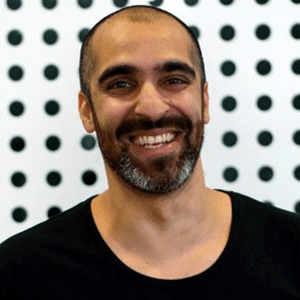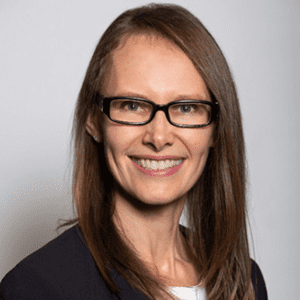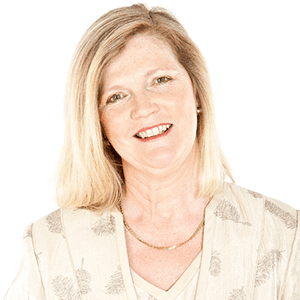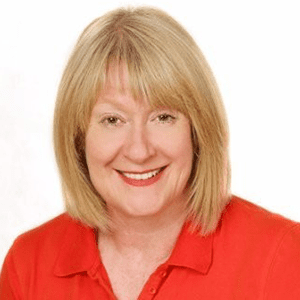
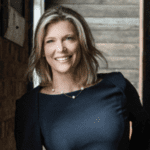
#26: Good business comes from good family
Susanne Bransgrove is a 3rd generation member of a successful German business and Founder and Director of Women in Family Business and LiquidGold Consultants.
To meet the needs of multiple generations, Susanne shares the powerful quadrant framework for a balanced approach to provide business sustainability, people focus and family harmony.
Stephanie: Hello and welcome to TEC Live. Stephanie Christopher here, chief executive of the Executive Connection. TEC connects CEOs, executives and business owners to the world’s largest business leader network. My guest today is Susanne Bransgrove, the founder and director of Liquid Gold Consultants and also Women in Family Business. Susanne is a family business specialist and an entrepreneur with extensive business experience across various sectors and countries including Germany, New Zealand, the USA and Australia, from corporate organisations right through to startups. Susanne’s passion for family business is built on her own experience as a third generation member of a successful German business, allowing her to truly understand the range of issues that exist in a family business, especially when trying to meet the needs of multiple generations. Susanne, welcome to TEC Live.
Susanne: Thanks for the invitation, Stephanie.
Stephanie: So I’ve given some thoughts, Susanne, about how we should have this conversation and I think that your background in your own family business is so interesting because of what that has brought to you and your work. I know that we’re going to get down to a system, to in fact, the four quadrants that you look at, the two quadrants that are the family and the two quadrants that are the business. And we will get to that because I think those four quadrants are very, very powerful. But before that, I’d love a bit more background from you and I’d love to understand more about you and your family business, back where you’re obviously from originally in Germany. Tell us a little bit about that business.
Susanne: So the family business I’m from is 375 years old and related to in the shipping industry. So we tend to have a bit of a joke about this. How could you possibly be a third generation of a family business that’s 375 years old? It’s really quite amazing.
Stephanie: You come from very old stock.
Susanne: My grandfather just wasn’t going to give up the reins, he was holding on for 250 years. That’s sort of what it feels like, I think for a lot of families. So my grandfather saw an amazing opportunity after the second world war. There was only one family member remaining of the original family who started this business such a long time ago and he bought the business at that point. So related to the shipping, as I said, tallying of goods, mostly single items. So we’ll steal cars, those kinds of large bulky items that need to be very carefully stowed and looked after, with container shipping that has changed the landscape a little bit. But the business still does have quite a few employees and clients that need to be looked after. And my father did follow my grandfather’s footsteps and we like to have a bit of a joke how you can manage succession quite easily because my grandfather was an only child, my father is an only child and where he made the mistake is he had two daughters.
Stephanie: And you’re in Australia and your sister’s not involved in the business?
Susanne: No, she’s not involved in the business.
Stephanie: Right. Okay. So that’s a really interesting challenge then, isn’t it?
Susanne: Yes, it is.
Stephanie: So definitely firsthand experience with family business.
Susanne: Yes indeed. It’s interesting with the work that I do, I get to experience what it feels like because I get to feel it with my own family.
Stephanie: Yeah, you said something to me that was really interesting about the challenge for the ongoing generations who have grown up with a business, being very much part of who they are as a family and if something happens and that business doesn’t continue, you talked about that as a real grief for the next generations.
Susanne: Yeah, and it’s the grief that does carry on for very long period of time. So as mentioned, our business has been within our family since the second world war. I’m in Australia, my sister doesn’t work in the business and therefore we are going through management buyout. And as much as I understand this on an intellectual level, on an emotional level, that’s very difficult to deal with. And I often meet families and I mentioned to you the conversation when people say, ‘I wish I would have met you in known about what you do before our family imploded or before we ended up selling the farm and before the business broke.’ Because when decisions are being made or when businesses break, each and every family member working in the business or not has been on the emotional roller coaster as part of that businesses journey.
So if dad founded that business 50 years ago, the children know it, understand it, love it. And if you look at farming families, the land often has been in the family for generations. So the moment one person makes a decision that breaks something or to sell something without other people having the chance to be involved and emotionally catch up with it, they will grieve for what they’ve never had the chance to be a part of or carry forward. And the next generation of course, gets to hear all about that. ‘We used to have this beautiful land and my uncle sold it or we used to have this amazing business and we couldn’t agree and it broke and I just wanted to help it grow. I wanted to do, my part and I never got the chance.’ And the children will carry that.
Stephanie: It’s really interesting. What I’ve enjoyed about our conversation, our extensive conversation all over one day, has been how you really look at a family business as separating the family and the business. However they’re both, it’s integrated clearly, but you see there’s different needs for each aspect. Do you want to talk about that a little bit, about your four quadrants?
Susanne: Yeah, so people do tend to understand that there is a family and that there is a business, but even at that level, people forget often that there are a whole bunch of human beings tied up into a family and by the nature of family are stuck in a system that is very difficult to get out of, by the way. But in addition to that, so with the four quadrants, there’s the business side and the family side, but on the business side there’s a very clear governance and strategic direction and there’s an operational component. And on the family side there’s the family as a collective, as an ownership, current and future, as well as stakeholders, as well as each individual.
So the thought is around good business coming from good families, but really you can’t have a good family if the individuals within it don’t have a voice, if they’re not healthy and if they’re not feeling that they’re being heard or have a place to live. And that is really putting attention to where it’s deserved. And also understanding that communication has to occur in each one of those quadrants.
Now most business owners are very good at operational conversations and they do have weekly management meeting, at least you hope they do. But in most cases they do and that’s where it stays. But there are no board meetings and they should be maybe monthly or whatever, it takes that place of governance and the family needs to have an ownership conversation at least once every six months. And the individuals might also have a regular coaching, mentoring, whatever it might be that they need. But each of the different purpose and the different people involved, but they all need to exist and they generally don’t.
Stephanie: In each of these four quadrants. So one of the challenges I can imagine from the family point of view is families expand. I mean, they contract and they expand. New players come into a family, daughters-in-law, sons-in-law, grandchildren, great grandchildren, blended families. So that must put potentially great pressure then on the family ownership and the individual side of things.
Susanne: Yeah. And it never used to, and we talked about this, in the traditional way of transferring business from one generation to the next, we used to operate in a patriarchal system. So really what you looked at, the oldest son. So it was going from one person to one person realistically. So you never had the growth within a family unit and number of people that you used to have. And quite frankly, the voices weren’t important and they weren’t heard. And as much as it was uncomfortable and not ideal for some people within that family, everybody understood that this is how it is and there was some clarity around this.
So with the change in the system, in a societal system around equality and everybody getting a chance and the desire to give equal shareholding to the next generation, you’re now coming into a phase where yes, you do have a lot more voices, you have people who are now shareholders or stakeholders and it is more complex, which means it needs more time and attention to structure and govern that and give people the chance to have a voice and have a place, which they didn’t have to have before.
Stephanie: So let’s spend some time going a little deeper on the family complexities. And then whenever we talk about this, I think there’s people in that business who aren’t part of the family, whose own individual career and their family’s livelihood depends on that business. And it’s quite challenging for them if only they knew all the other things that are going on within the family. But let’s move into the family two quadrants now, and explore more about, so society’s changed, it’s not patriarchal, it’s not father to firstborn son. Things are different. What challenges does that bring up?
Susanne: The challenges are to, well first of all, the patriarch now has to change his behaviour towards this next generation and that’s a very difficult thing to do. So we are who we are and how we’ve been brought up and you try to tell a 75 year old patriarch who’s had control of a business that he’s grown, that he now needs to have inclusive relationship with his three or four children, men and women and pay attention to getting the family to be able to survive in the future.
Stephanie: How does that go when you do try to tell that 75 year old patriarch?
Susanne: In most instances, all I really ask is to give us room because the problems that are going to occur in the future when the patriarch dies, the patriarch doesn’t have to deal with it any longer, but by him blocking the pathway for the generation to connect and have common ground and common language and alignment as to how things are being dealt with, how decisions are made. If he stands in the way of that happening, then we’re going to have some real issues the moment he dies because four people are going to have four different perspectives, four different needs, four different drivers. And what you want to do is align that before the event occurs.
Stephanie: Yes. And does it have to be an event that results in someone passing away or it could be someone retiring and exiting the business altogether, couldn’t it?
Susanne: That’s a lovely theory.
Stephanie: I was just trying to make it nice.
Susanne: My father’s 81, he still works in the business. And the reality is, this is part of the biggest stumbling block, that most patriarchs or most founders have such a close connection to it and they just don’t quite feel that anybody else might understand the business and also, their purpose is tied up in it. So exiting the business altogether is a wonderful idea but it doesn’t work for everybody. So what about coming up with something that’s going to allow them to start feeling more comfortable with more activities and control being taken up by the next generation, in a way that he can agree with it, but he’ll probably never quite exit that business, I can’t see my dad ever exiting.
Stephanie: Until the bitter end. So I’m wondering if that’s one of the reasons why a founding patriarch doesn’t move away because they’re not confident then in what’s going to happen, if they can see complexity, maybe it was easier when it was from father to son, to son, to son. But now I guess with the added complexity you’ve talked about, they just can’t see a way through it on their own either.
Susanne: No. So they’re generally two reasons why we see resistance to future proofing the business from an ownership change perspective. And part of it has to do with liking the way things have been done and also not understanding that every generation has their own way of running a business, for example, even just doing life. And the initial founders perspective on the next generation tends to be, and I’m sure you’ve heard this very often, ‘My children are not good enough. They don’t have what it takes.’ And this is something that I hear very often. But often that kind of statement is very subjective because the measureables aren’t really in there. And I just feel that we have a responsibility that if our next generation isn’t good enough, the question is what are you going to do about that?
Stephanie: Yeah. So what they may well be saying is my children aren’t the same as I am or I was. And that’s not necessarily about whether they’re good enough or not, it’s just, it’s different.
Susanne: That’s right. And recognising that takes quite some time. But again, by nature of that change, the person who’s the most vulnerable tends to be the founder and the person who has to exit because they’re most used to doing things in a certain way. Which is why I said the recognition that you might have to separate the two generations in some way, through a process whereby you allow the next generation to define the future and how they’re dealing with today as a collective. So not letting the difficulties divide them, but set them up for the future, is a really important part.
Stephanie: And so I’m assuming you would see the importance of assistance in that next generation to figure out how they’re going to do things rather than it would be a wonderful and most cohesive family who could get together and just nut this out by themselves.
Susanne: Yeah, that would be. Some families do, some families are very close and seem to have the skill set to overcome a difficult situation and align. But there are a lot of families who do struggle with that and assistance is required. I was like to sort of say families tend to just keep doing the same thing and they behave in the same thing. And we all know this with our own families, that we have a certain way to look at our siblings. And when people talk about the sandpit fuse, there’s a real reason why they joke about this because we just make assumptions about our closest family members and we don’t allow them to grow.
And what I mean by that is they actually do grow up and they do improve and they do work on themselves, but we just don’t see any of that. And as we all know, the hardest thing is when you’ve been working very hard on yourself and to change and then the next thing you’re coming up for family Christmas and the first thing your sister says is, ‘You always do that.’ They drag you back to where you’ve been.
Stephanie: I can’t imagine that at all.
Susanne: So they drag you back to where you’ve been, it feels very uncomfortable and you’ve done progress and you often need somebody who can change the conversations and allow you to see the progress that your siblings-
Stephanie: I was going to say, get the best out of everyone.
Susanne: Correct.
Stephanie: Let’s talk about your work with women in family business because I think it’s so interesting the perspective that you bring to this. So tell me what kind of drove your interest, particularly in women in family business?
Susanne: I’ve worked with family businesses now for 10 years’ and at some point early last year I realised when reflecting on these journeys with families, that I needed a family champion to drive the family cohesive, these family conversations within the family because without somebody understanding that good business comes from good families, then it’s going to be an impossible journey. And I realised that generally it happened to be women who understand the importance of family unity and connectivity.
Stephanie: Can we just go back to what you said then about a champion in the family? What role is that?
Susanne: So in the business side, you tend to have a champion, that’s often your CEO or your managing director, who takes control and makes sure that there is activity that’s going to see the business go to where you wanted to go. Equally on the family side, if you want the family to be in a better position to transition to the next generation in a more meaningful and aligned and harmonious fashion, then you need to have a bit of a goal as to what that’s going to look like and you have to move towards it and that takes effort. And one person has to oversee that and be passionate enough about it, to keep it moving forward.
Stephanie: And so you’ve seen that that’s been most recently a role best played by or most often played by woman in the family.
Susanne: Naturally, women more naturally because of the nurturing and caring element and looking after the children in the family, understand where the problems are. So they look at their family and they see the conflict between the two sons or the conflict with the child and father. And they recognise and they start sort of future casting the what if’s and they see the disconnect or the niggles and the conflict and they would love to resolve this for the benefit of all. That’s generally, that’s a very mothering instinct. And in many cases they do not know what to do with it, nor do they understand that that is actually a role. The family champion role is very real in family businesses but misunderstood and often not acknowledged. So the whole idea behind women in family business on a very core level, is to give some legitimacy to the complexity of being a family in business and allowing somebody to take charge of that and not feel conflicted or feel that it’s not allowed or it’s not valuable.
And the real economic driver behind that is, if you look at our statistics around transitioning families with wealth and business, from one generation to the next, we’re not doing particularly well with that. And I think they say 12% make it through the third generation. So it’s not fantastic. And if you look at the reasons behind that, 95% of the time when families do not make it, it’s because of the family relationships and the lack of communication and it’s in the human element. But as an advisor community, we focus 95% of our effort on the business side of things. And for me that means that if we keep doing that, I mean that’s going to keep getting the same outcome.
So we’re seeing a huge transition between generations over the next 10 years and we also going to start seeing more women taking leadership roles. So it felt natural to start changing perspectives and conversations, to bring attention to what is actually happening underneath and how do we shift family communication to give you better chance to survive as a family in business. Because the impact of family businesses breaking on their community, is terrible. Staff lose their jobs and the local footie team doesn’t get sponsorship anymore. It impacts on local businesses. So it’s critical. And as I mentioned before, the amount of times I hear families coming up and saying, ‘We wish we would have done something or we wish we would known what to do.’ Means that we need to give them somebody in the family who knows what to do.
Stephanie: It makes wonderful sense. So when you’re talking about women in family business and thinking about you four quadrants, so that certainly about the family ownership and the individuals in the family, do you also, through this organisation, look at the business side, the women who are working in the family business, do you work in that area as well?
Susanne: Yeah, naturally. Yes, there are quadrants and there are lines, but of course people move between the lines, family members move in and out. They might be ‘only family members’ but they might move into the business and they might’ve been in the business and move out. But really it’s about the impact on the human element inside and outside of the business, that this really looks to address.
Stephanie: What are the biggest issues you’ve found that the women you’ve worked with so far in women in family business?
Susanne: It’s been interesting and I think it’s a reflection on the position that women tend to take. In particular in what I like to say, my generation, without giving away my age, but we talk about the generation X and older and this is part of our natural bias and how we were brought up and we have a tendency to believe that men should have the more powerful roles and that our perspective, might not be quite as valuable and maybe we shouldn’t bring that to the table. And I’ll give you some examples of that of what I tend to see.
So I remember one family I started working with, parents with three children and she profusely apologized and said, ‘I’m really sorry, I have nothing to offer. I’ve studied this, and I’ve got this degree. I’ve never worked in the business, I’ve stayed at home with the children and I don’t even know why I’m part of this process because I don’t know anything about the business. I haven’t got much to say.’ And at the time I didn’t really know what to say either, but I didn’t ask her to meet again and asked her permission to give her some feedback on this. And my perspective on this was that absolutely, you’ve never worked in the business and without your husband building the business and being as successful as he was, we wouldn’t be sitting here talking about succession for your family and family business.
But equally, if you didn’t put the muscle around the values and put the attention into your children for them to be the children they are today, we would also not be having this conversation. And it was a very profound conversation, it was really a building block to the women and family business concept because I started to realize that what she did was equally as important as what happened on the business side, but she didn’t value it. And what was wonderful is that after that conversation, her input and confidence changed completely and she started to realise that yeah, she did have a role to play and it was important. So that’s just one example of how it shows up.
Stephanie: That’s interesting. Can I put something to you? So all people play multiple roles in society, in work and home or whatever they’re doing. So do you ever see this disconnect between how a woman might operate in the business or in a business and how they operate within the family?
Susanne: Yes, and that is again, one of the complexities of being a family in business, that they are incredibly capable with the operational role that they have, often senior leadership of course, but the moment they then have to deal with their brothers, for example, to present a point, in particular personal point, let’s say pay or position or they feel unable to stay their ground and to ask for something that they probably quite rightfully deserve and tend to give up ground before they’ve even started. Yet, if they would be having that conversation with somebody who was not in the family, it would be very different. And that is something I try to explain to people quite often, when they say well there are women in business concepts or they are women leadership, which is fantastic. But when you’re in a family business, you can’t just promote yourself out off or sideways, out of the family business.
So if you don’t like how you’re being treated by your boss, well who happens to be your father in this case, you don’t just get to go to another business because your heart’s in it remember, so as much as we can talk about the theory of well why don’t you just work elsewhere? You are emotionally attached to it and you’ve worked there for the last 15 years and you have a vision of what you wanted to achieve and how you want to contribute to your family and the dreams that you’ve had as a child and growing up. And how do you just put that aside? So you can see how incredibly complex it is.
Stephanie: It’s so layered. Do you think that in the same situation, men are having the same kind of challenges, maybe a younger brother or what have you, do you think that’s just as relevant?
Susanne: I think all next generation in a family business have challenges that people who work as employees in other people’s businesses do not have. So when we talk about women in family business being the champion, they are also the champion for the next generation. And what I mean by that is that when you work in a family business, often there’s also a bit of a lack of process, how you got into the role that you occupy. And as you can imagine there will often be comments around, ‘Well you’re only here because you’re the son.’ And it’s something natural to us as well, if we’re not having the feedback mechanism to know that we are where we belong for a reason and that we are adding value because we’re not getting the normal treatment then often the next generation tends to have some identity issues with that or doubt about their own performance.
And just an example, people always joke about they send their children off to other families businesses to make mistakes. It’s not just that they cause damage there, I actually think it’s because you get a measured response how to deal with making mistakes. Because in a family business, just imagine if you make a mistake, you either don’t get dealt with at all or it’s going to be a little bit too harsh. So these are all the issues that family members within the business have to deal with unless there’s process in place. And that’s the concept of the four quadrant. There needs to be good process in each one of them with interlinking mechanisms and good communication to allow people to be the best that you want to be.
Stephanie: So there was a quadrant on the family that I like and that’s about individuals within a family. And I think you said something in passing a little while ago about how valuable it could still be for individuals in a family to receive coaching or some kind of input or development, even if they’re not involved in the business. Is that right?
Susanne: Yes, because you can’t future cast where people are going to end up one day. And even if they’re never going to work in the business, they’ll most likely be shareholders at some point or shareholders spouse. But there will be a change in the role that they play and the decisions that they have to make. So it’s very similar to you want the best people in your business, you also want people to make good decisions for the family and you want them to feel that the role that they’re playing and what they bring, is valuable and that they are, as individuals, that they have purpose in their own lives. So it’s still just as important.
Stephanie: Have you seen families and businesses where this has played out really well, where they’ve put the effort in, in each of the four quadrants and it’s played out well?
Susanne: Yeah, I’ve just come back from a family council assembly with one of the families I’ve been working with for a long time and they are, all up, 15 family members, when we’ve got some of the spouses in the room as well. And what I thought was absolutely lovely, but it’s causing me a little bit of grief is that we started off with the next generation just being passengers on this journey and just learning and getting information. And we started off with one out of seven working directly in the business, now we’ve got four out of seven working directly in the business, which is wonderful. And they have opinions now. So now they actually contribute and I have to manage all these different input levels, which makes my life-
Stephanie: Be careful what you ask for.
Susanne: Yes. But it’s wonderful to see and it is an imperfect journey by nature. So there’s no such thing as taking a family on a perfect journey because there are humans involved. But what it takes is constantly review and adjust and change the journey, which is why it’s not a one off effort, it’s not just a one year effort. It’s a continuous effort in the same way that you don’t just do the strategy for your business once and then you just leave it for the next 10 years. That’s why I like the idea of putting the family and the business on two separate sides because they deserve attention and input and actually, in a way, if you do it right, there’s some similarities in what you structure and the documentation that sits below.
Stephanie: I love that. So a family council assembly, so that’s got some formality around it or the title certainly does.
Susanne: Yes it does. So there’s a family council and then the assembly is where the family gets together. But there’s agenda, there are topics that need to be explored, there are decisions that need to be made, there’s some fun to be had. And I tend to structure these days, that they is professional development, personal development and learning about the business, breaking it up and making sure that there’s a well rounded agenda and that takes a bit of input and a bit of time to pull that together and make sure that it’s constantly positively moving. We don’t want things to stagnate, we don’t want things to sleep. So it’s a lot of effort to keep a positive momentum with the family and for them to see that they’ve come a long way.
Stephanie: I think it’s really optimistic your view, that it’s about the future. It’s always about a view of the future and the future could be better and individuals could be better. If someone’s listening or knows of someone who’s in a family business and they probably don’t have any delineation of their quadrants. Which quadrant do you need to start in?
Susanne: It depends a little bit on how many family members are involved. But if I looked at where the effort is currently placed within the quadrants and if you ask people to take stock where they spend their time, effort and resources in general, including where they pay people to help, you find, if they’re being honest, they probably spend at least 90% of their time, effort, and resources on the operational quadrant. They might spend some time on the strategic governing quadrant. And then if they look across at the family, they start realising that they really don’t put any effort into family unity, connectivity and a vision for the future and governance, nor do they in a formal and structured way, support the individuals within it.
So if you’re looking at your quadrants and you’re realising you’re spending your time in operational as a very minimum, I’d encourage for you to find ways to be more strategically focused and forward looking. Because if you have family, that’s going to be important to survive. And if you have multiple family members in the business, then you need to start looking across at the family half. But start off perhaps with the family governance and then start structuring, mentoring and coaching down to the individuals.
Stephanie: It’s so complex, it’s so layered as I said. And Susanne, thank you so much for showing us the separation, I guess, between the family and the business, but then obviously the blurred lines all along. But perhaps the separation and thought of the planning and the consideration in each of the quadrants and making sure that it’s not just about the operation, which is important for sustaining ultimately the family going forward. I really appreciate the way that you bring in the economics of this, absolutely aligned with the humanity and the side of it and not at any time, shying away from the complexity that is a family and is a business and you put the two together. I think your insights have been really, really valuable and interesting. And Susanne, thank you so much for your time.
Susanne: Thank you so much for having me and inviting me and letting me share my thoughts and ideas.
Stephanie: Great having you. Thank you. So that’s TEC live for today. CEOs are in the business of making decisions and leadership is the art of execution. I’m Stephanie and look forward to talking to you next time.
